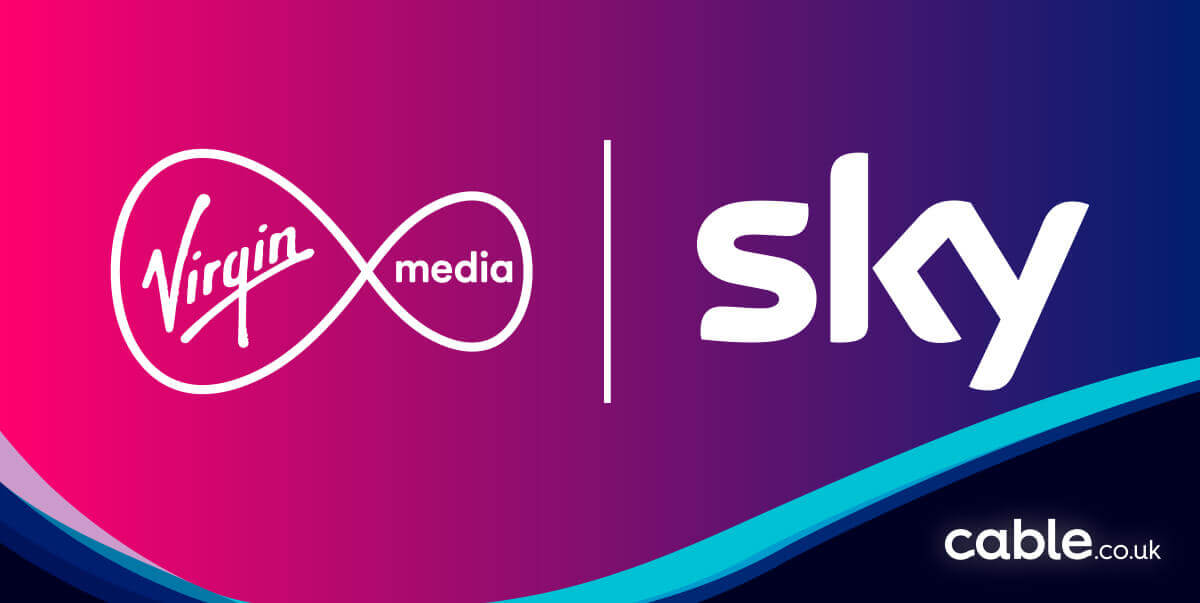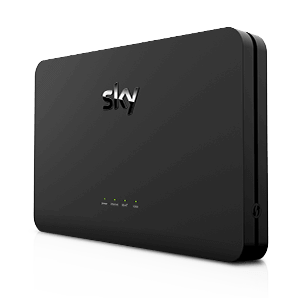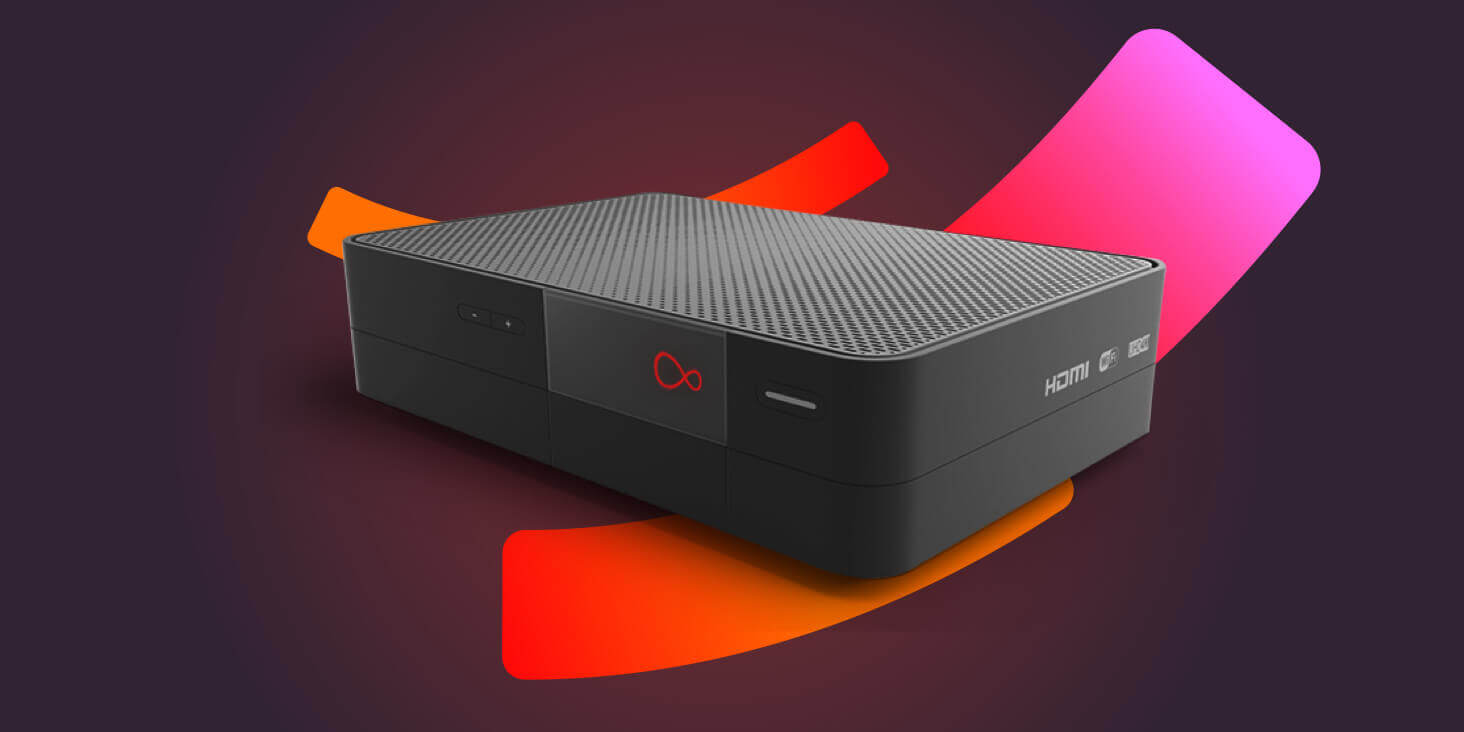Dan Howdle | May 31st, 2024
Sky vs Virgin Media: Which provider should I choose?
Sky is best known for its unequalled satellite TV service, and now, perhaps even more so, the brilliant Sky Stream – all of Sky TV delivered over the internet. Virgin, meanwhile, has been falling behind of late, both in terms of the technology and convenience of its TV offering, and having lost its crown as the UK's fastest widely available broadband provider to EE Broadband.

It's simply no longer the case that 'Sky wins on TV, and Virgin Media wins on broadband' as has been the status quo for more than a decade. Sky trouncing Virgin Media in terms of customer service and complaint numbers only adds to the feeling that Virgin Media seems to have slipped a long way from Front Street. Still, its extremely fast broadband is available to a whole lot more homes than any other provider offering similar speeds, and its TV offering, opportunity to bundle O2 SIMs, and sheer value for money remain compelling. So, a nuanced battle of the Titans commences.
Key feature comparison
| Sky | Virgin Media | |
|---|---|---|
| Top download speed | 900Mbps | 2Gbps |
| Top upload speed | 9Mbps | 2Gbps |
| TV channels | 300+ | 230+ |
| Sky Atlantic | Yes | No |
| Broadband required | Yes for Sky Stream | Yes (Virgin Media only) |
| Contract length | 18 months | 18 months |
| Fixed price | No | No |
Sky TV vs Virgin TV
It's the battle of the TV channels from the top TV heavyweights.

Winner: Sky
Sky’s entry-level Sky Stream Entertainment is an impressive offering, with an impressive array of over 150 channels. And while this may sound smaller than you may be used to hearing about from Sky, remember that this is the basic package and doesn't include Sky Sports or Sky Cinema, and Sky Stream does not show +1 time-shifted channels (you can rewind any channel as much as you like if you want that) and all its channels are in HD, so no SD (standard definition) channels. You won't be missing anything Sky Q did and does provide – we just no longer recommend Sky Q as it's nowhere near as easy and convenient as Sky Stream. Added to that is a free Netflix subscription and free access to Sky Box Sets, delivering over 500 TV shows on demand from Sky and HBO's back catalogue. Virgin Media offers plenty of channels, but crucially, not Sky Atlantic.
Both providers cover the same bases, offering pretty much every type of TV, movies and sport content you could possibly want. Only a short time back, Sky offered a range of bundles. Now, though, the situation is somewhat different. All Sky bundles start with the Sky Entertainment pack – which we've written about in detail if you follow the link. With that, you get 150+ channels, a Netflix subscription, and Sky Box Sets and then you can bolt on whatever else you need at varying additional expense, including movies, sport or kids TV.
Virgin Media, meanwhile, is still doing things rather more traditionally. It has a range of bundles containing various quantities of channels. They are, in order of the amount of channels you get: the Big Bundle (145+ channels), the Bigger Bundle (190+ channels), the Bigger Bundle + Sports and Movies (210+ channels) and the Mega Bundle (all the channels – 230+).
However, the jewel in Sky TV's crown is undoubtedly Sky Atlantic. It's the only place to watch numerous HBO shows (besides Sky's own NOW TV internet video service), including Westworld, True Detective, House Of The Dragon, Vinyl, Billions and so on. Let us just state that again: you can't watch Sky Atlantic on Virgin Media. And that could be a deciding factor for many.
Sky broadband vs Virgin broadband
This is a bit like those movies where the old master tells a 'chosen one' of some description: I have shown you the path, but only you can walk the path.

Winner: Virgin Media
Virgin Media has faster broadband than Sky (1130Mbps on Virgin's Gig1 versus 900Mbps on Sky's Full Fibre 900). It's better – on paper. But how much of that extra speed is going to be useful to you? The answer's only 'all of it' if you download a lot of huge videogames and don't have much patience. And let's be honest, there's not much in it.
However, Virgin Media, with its own network, offers all its customers a top speed of 1130Mbps with its Gig1 service (and they've tested a service twice as fast as that), while Sky's FTTP packages (running on the Openreach network used by most other providers) only offers an average of 900Mbps. And don’t forget that, for now, Virgin Media’s network is twice as widely available than the Openreach FTTP network Sky relies on for is full fibre packages. So Virgin Media clearly wins, both on speed (though the gap is narrowing), and in terms of its broad availability.
| Broadband Package | Download Speed | Upload Speed | Monthly Cost |
|---|---|---|---|
| 0Mbps | 0Mbps | £0 per month | |
| M125 Fibre Broadband | 132Mbps | 20Mbps | £26.50 per month |
| M250 Fibre Broadband | 264Mbps | 25Mbps | £30.50 per month |
| M350 Fibre Broadband | 362Mbps | 36Mbps | £34.50 per month |
| M500 Fibre Broadband | 516Mbps | 52Mbps | £33.99 per month |
| Gig1 Fibre Broadband | 1.1Gbps | 104Mbps | £40.99 per month |
| Gig2 Fibre Broadband | 2Gbps | 200Mbps | £84 per month |
Having said that, it's arguable how much of Virgin Media's 1130Mbps most people actually need (or indeed Sky's 900Mbps deals). Certainly, 150Mbps is enough for most households of four or even five people, so what sort of household is 1130Mbps for exactly? One with 100 people? Truth is, 1130Mbps is only going to fully benefit a very narrow sliver of the public: those who download videogames.
For that purpose, 1130Mbps means you'll be playing within a few minutes of buying in most cases (not on PlayStation, though as PSN throttles speeds at their end), rather than having to wait an hour. Sky's available-almost-everywhere FTTC fibre averages speeds of around 61Mbps, but even that's enough for many households. For perspective, with 61Mbps you could watch several high-definition screens showing different movies all at the same time.
So ask yourself again: whose broadband is better? OK, it's still Virgin Media's at the top end, but if we're talking about their entry-level packages, there's really not that much in it. And like we say, very few folk will actually benefit from Virgin Media's outrageous top speeds.
-
 £50 Bill CreditM125 Fibre Broadband
£50 Bill CreditM125 Fibre Broadband- 132Mb average speed +
- Unlimited usage +
- No phone line
- £50 Bill Credit
- No 2024 Price Rise
£26.50 per month(prices may change during contract)£50 Bill Credit£0 one-off cost18 month contract -
 M500 Fibre Broadband
M500 Fibre Broadband- 516Mb average speed +
- Unlimited usage +
- No phone line
£33.99 per month(prices may change during contract)£0 one-off cost18 month contract -
 £70 Gift CardUltrafast Plus
£70 Gift CardUltrafast Plus- 500Mb average speed +
- Unlimited usage +
- PAYG calls
- £70 Gift Card
£33.00 per month(prices may change during contract)£70 Gift Card£5 one-off cost24 month contract
Broadband near you
Check speeds, packages and providers near you
Cable.co.uk's broadband postcode checker will find you the best deals, providers and speeds where you live. It's free and takes less than a minute to check and compare.
Sky vs Virgin Media
Landline and calls package

Winner: Tie
Virgin Media and Sky tie here. Both offer you the option to have no landline at all, although on Sky true broadband only is only available on its Full Fibre deals.
And there really isn't much difference when it comes to both providers' call packages put side-by side. Both Virgin Media and Sky offer pay-as-you-go (PAYG) calls as standard. Virgin includes free weekend calls to UK landlines, free calls to Virgin Mobile numbers and free calls to 0870 numbers. From there, you can choose to bolt on anytime calls or international calls. Sky offers evening and weekend calls, anytime calls, or international calls as optional bolt-ons.
When it comes to not having a phone line at all, you can only get broadband only deals from Virgin. Before you get excited about not having to pay line rental, though, you still have to pay line rental. Or rather, the price doesn't go down for not having a home phone line. You don't save anything.
Compare Virgin & Sky deals Call Virgin 0333 210 1126
Sky Hub vs Virgin Hub (3 and 5)
Who's got the best broadband router?
The router is the bit of kit that plugs into your phone line (or installed cable in the case of Virgin Media) and distributes broadband throughout your house either via LAN cables or, more commonly these days, via wi-fi (wirelessly).
These things are very hard to judge in any way other than subjectively. Sky supplies the Sky Hub for all its broadband and TV deals. It enables fast, reliable connectivity for a large number of devices. It has two Ethernet ports for wired connections and is dual band, enabling excellent coverage around your home. If you pay extra for the Sky Wi-Fi Max add-on, you get the Max Hub, which adds mesh routing and Wi-Fi 6 compatibility for better speeds at longer range.

Virgin Media offers the Hub 3 with all its packages, except for its Gig1 package, which comes with a Hub 5. The Hub 3 is a highly capable router, again enabled with dual-band technology. It also has four Ethernet ports and five antennas for sending the wifi signal around your home. Its Hub 5 is supplied t no extra cost if you plump for the top speed, though, and is comparable to Sky's Max Hub in terms of its specs.
Our verdict
Tie
There are pros and cons here. The Sky Hub is a better router than Virgin Media's Hub 3 but if you want a stonkier router, you'll have to either plump for Gig1 with Virgin Media or add Sky Wi-Fi Max at extra cost. It's much of a muchness with both providers offering good routers and upgrade paths if you're willing to shell out.
Sky Stream vs Virgin TV 360
Who's got the best set-top box?
Sky Stream and Virgin TV 360 are now very different products. Note that we're not longer comparing Sky Q (satellite) as Sky is going to gradually be dropping support for it over the coming years, and Sky Stream is just a far better and more convenient value proposition. Virgin TV 360 requires a physical Virgin Media coaxial cable to reach it, while Sky Stream only needs an internet connection, which you can do over wifi.
So TV 360 is now just a lot more fuss than a Sky Stream box. The latter is also way smaller – so much so you can tuck it behind even most wall-mounted TVs.

Future-proofing is valuable in and of itself, and whether you have a 4K TV or not, whether it's the 65"+ that you need to really appreciate 4K or not, there is no denying that Virgin's 360 box is a highly capable device. Meanwhile Sky's betting (rightly) on internet based television being the only game in town in the not too distant future.
Our verdict
Sky
Virgin's TV 360 Box feels old-fashioned – a hangover of the cable TV of the 90s and noughties, despite providing a lot of modern features. Sky Stream Box is more future facing and doesn't require any new cables to be installed in your home. It's also available without Sky Broadband, while Virgin TV is only available to Virgin Media Broadband customers.
Sky Mobile vs Virgin Mobile
Who's got the best SIM deals?

Both Sky and Virgin Media – or to correctly use their sub-branding: Sky Mobile and O2 – both offer mobile SIMs that are at various times and to various extents cheaper than those offered to non-customers. It's a little pointless us going into the details of how many gigabytes of data you get and how they compare and what the coverage is like because these either change all the time or are subjective.
Both O2 (owned by/merged with Virgin Media) and Sky Mobile offer 5G where available. Both O2 and Sky Mobile run on the same network – O2. So there's little to choose between them. However, you can't bundle a Sky Mobile SIM with your broadband and TV deal, whereas Virgin Media will only supply you with an O2 SIM with its 'volt' bundles. If you want an O2 SIM on its own you only need to go directly to O2.
Our verdict
Virgin Media
It's Virgin Media (O2). Virgin beats Sky purely by dint of offering SIMs bundles in with its broadband and TV, where Sky doesn't do this. Virgin Media's 'Volt' bundles tend to be expensive because they include everything, but broken down they're actually terrific value.
Other influential factors
As well as the headline acts, there are a number of other things you need to consider when choosing between these two providers. On the TV side of things, remember that it’s delivered by two very different technologies. Sky has the convenience of delivering its TV via your pre-existing internet connection via Sky Stream, while Virgin Media will have to drill a hole through your exterior wall. Depending on the type of house or flat you own or rent, this could be a significant factor.
Our verdict: Virgin Media or Sky?
Sky wins

Its a change of winner here in our most recent update. With Sky offering up to 900Mbps there's not all that much in it anymore when it comes to speed. And with Sky now offering Sky Stream, it is hands-down the most convenient and cost-effective way to access Sky's content. You also won't get Sky Atlantic or Sky Box Sets no matter which Virgin Media TV package you choose,
Things do change slightly – in that it's a more even toss-up – if you live somewhere you can get Virgin Media but can't get Full Fibre when it comes to broadband. But in terms of TV, content, of convenience, of customer service, and of the ability to get TV on its own, Sky wins handily.